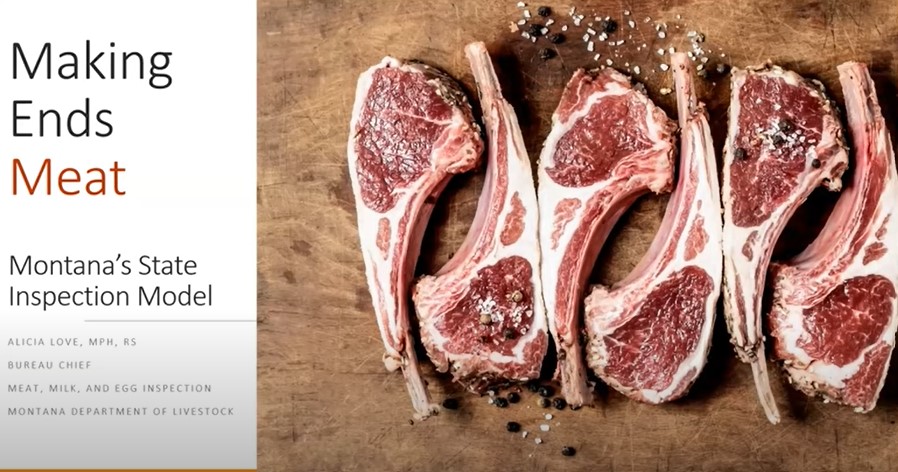Despite Montana being home to over 100 Custom Exempt Meat Processing Facilities, more than 25 State Inspected Facilities, and over 30 Federally Inspected Facilities, ranchers are still looking at waiting lists ranging from months to over a year. As the demand for local meat continues to rise, processors are under increasing pressure to expand their operations and capacity.
To help those interested in starting or expanding their meat processing businesses, the Great Falls Development Authority’s (GFDA) Food and Ag Development Center partnered with Alicia Love, the Meat, Milk, and Egg Inspection Bureau Chief at the Montana Department of Livestock, to host a webinar that broke down the complex licensing process involved in meat processing. This webinar provided valuable insights on the different types of meat licenses available and how they relate to various business models. For those who missed it, a recording of the webinar is available on GFDA’s YouTube page, along with other useful past training resources: WATCH HERE
The webinar highlighted the six different types of meat processing licenses available in Montana, each designed to serve different business needs. Whether you’re a rancher looking to process livestock for personal consumption, a meat processor aiming to sell to the public, or someone considering expanding an existing operation, understanding these distinctions is crucial.
Custom Exempt Facilities allow processors to handle livestock for private individuals or entities, with the meat only being used for personal consumption, not for resale. State Inspected Facilities provide a level of oversight by state inspectors, allowing processors to sell meat within Montana but not across state lines. Federally Inspected Facilities ensure that products meet federal standards for quality and safety, which opens the door to interstate sales and wider markets. This type of inspection is essential for processors aiming to expand their reach beyond Montana’s borders.
Another important topic covered in the webinar was the Cooperative Interstate Shipping (CIS) Program. It allows processors to ship their products across state lines, which expands their market reach and boosts business growth. Alicia Love explained the program in detail, sharing the benefits and eligibility criteria for businesses that want to expand their customer base beyond Montana.
For ranchers who process their own livestock, on-farm slaughter regulations were also discussed during the webinar. While many ranchers handle the slaughter and processing of their own animals, it’s essential to know the regulatory requirements surrounding on-farm slaughter, particularly for selling meat to consumers.
You can watch recordings of past training webinars on their YouTube page, providing further insights into the meat processing industry and related topics. If you have further questions about meat processing licenses, on-farm slaughter regulations, or other industry-related matters, the Montana Department of Livestock’s Meat and Poultry Inspection Section is available to assist. You can reach them at (406) 444-5202 for more information or to get personalized advice for your business.
Watch the webinar HERE!
###
GFDA/Montana Department of Livestock’s Meat & Poultry Inspection Section


